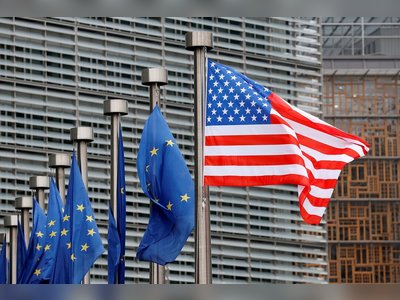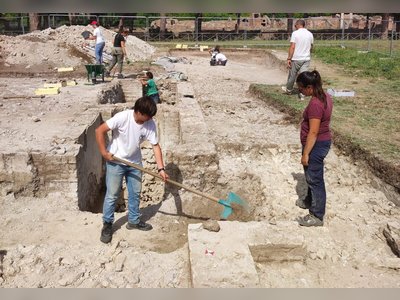
Belgian Court to Decide on Ursula von der Leyen’s Immunity in Vaccine Procurement Dispute
The President of the EU Commission is accused of corruption and procedural breaches concerning COVID-19 vaccine contracts, while a Belgian court is examining her immunity.
A court in Liège, Belgium, is scheduled to rule on January 6, 2025, on whether Ursula von der Leyen, the European Commission President, will retain legal immunity in a case involving allegations of corruption related to the procurement of COVID-19 vaccines.
This decision follows a complaint by Belgian lobbyist Frederic Baldan, who has accused von der Leyen of corruption, destroying public documents, and violating procedures.
Case Background
The allegations against von der Leyen are based on claims that she engaged in secret negotiations with Pfizer CEO Albert Bourla via SMS to secure a €35 billion contract for 1.8 billion COVID-19 vaccine doses.
Baldan claims these negotiations circumvented EU member states and lacked transparency.
Von der Leyen has claimed that the SMS messages were "accidentally deleted," which the court might humorously consider believing...
The first hearing took place on May 17, 2024, where the court asserted its authority over the issue.
However, further proceedings were delayed due to an objection from the European Public Prosecutor’s Office (EPPO), which argued that von der Leyen's immunity as EU Commission President protects her from legal action.
Charges and Allegations
Von der Leyen faces charges of:
- Usurpation of functions and title: Allegedly bypassing established procurement protocols.
- Destruction of public documents: Claims of deleting SMS texts during critical vaccine negotiations.
- High-level corruption: Allegations of secretive dealings with Pfizer.
The EPPO, responsible for probing financial crimes within EU institutions, has backed von der Leyen’s immunity claim.
Critics, including Baldan, have questioned the EPPO's impartiality, alleging it is shielding von der Leyen instead of thoroughly investigating the corruption claims.
Frederic Baldan’s Role
Frederic Baldan, the complainant, has been central to the controversy known as "Pfizergate." In 2023, he filed a criminal complaint accusing von der Leyen of abusing her authority, destroying documents, and corruption concerning her role in the vaccine negotiations.
Baldan asserts that these actions breached EU regulations and financially harmed public funds.
Next Steps
The Belgian court’s ruling on January 6 will decide if von der Leyen’s immunity is applicable in this case.
If the court rules against her immunity, the allegations may lead to formal legal proceedings against the European Commission President.
The outcome of this hearing will have significant implications for accountability and transparency within EU institutions.
The case highlights ongoing concerns over the COVID-19 vaccine procurement process and its broader implications for governance and oversight within the EU.
This decision follows a complaint by Belgian lobbyist Frederic Baldan, who has accused von der Leyen of corruption, destroying public documents, and violating procedures.
Case Background
The allegations against von der Leyen are based on claims that she engaged in secret negotiations with Pfizer CEO Albert Bourla via SMS to secure a €35 billion contract for 1.8 billion COVID-19 vaccine doses.
Baldan claims these negotiations circumvented EU member states and lacked transparency.
Von der Leyen has claimed that the SMS messages were "accidentally deleted," which the court might humorously consider believing...
The first hearing took place on May 17, 2024, where the court asserted its authority over the issue.
However, further proceedings were delayed due to an objection from the European Public Prosecutor’s Office (EPPO), which argued that von der Leyen's immunity as EU Commission President protects her from legal action.
Charges and Allegations
Von der Leyen faces charges of:
- Usurpation of functions and title: Allegedly bypassing established procurement protocols.
- Destruction of public documents: Claims of deleting SMS texts during critical vaccine negotiations.
- High-level corruption: Allegations of secretive dealings with Pfizer.
The EPPO, responsible for probing financial crimes within EU institutions, has backed von der Leyen’s immunity claim.
Critics, including Baldan, have questioned the EPPO's impartiality, alleging it is shielding von der Leyen instead of thoroughly investigating the corruption claims.
Frederic Baldan’s Role
Frederic Baldan, the complainant, has been central to the controversy known as "Pfizergate." In 2023, he filed a criminal complaint accusing von der Leyen of abusing her authority, destroying documents, and corruption concerning her role in the vaccine negotiations.
Baldan asserts that these actions breached EU regulations and financially harmed public funds.
Next Steps
The Belgian court’s ruling on January 6 will decide if von der Leyen’s immunity is applicable in this case.
If the court rules against her immunity, the allegations may lead to formal legal proceedings against the European Commission President.
The outcome of this hearing will have significant implications for accountability and transparency within EU institutions.
The case highlights ongoing concerns over the COVID-19 vaccine procurement process and its broader implications for governance and oversight within the EU.
AI Disclaimer: An advanced artificial intelligence (AI) system generated the content of this page on its own. This innovative technology conducts extensive research from a variety of reliable sources, performs rigorous fact-checking and verification, cleans up and balances biased or manipulated content, and presents a minimal factual summary that is just enough yet essential for you to function as an informed and educated citizen. Please keep in mind, however, that this system is an evolving technology, and as a result, the article may contain accidental inaccuracies or errors. We urge you to help us improve our site by reporting any inaccuracies you find using the "Contact Us" link at the bottom of this page. Your helpful feedback helps us improve our system and deliver more precise content. When you find an article of interest here, please look for the full and extensive coverage of this topic in traditional news sources, as they are written by professional journalists that we try to support, not replace. We appreciate your understanding and assistance.











